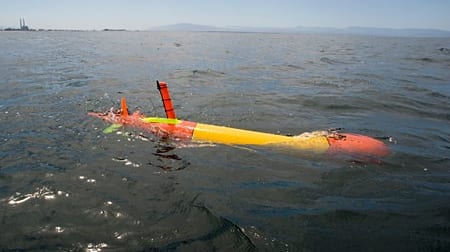By Daniel de la Calle
This November I’m looking for traces of “Ocean Acidification”, not in water, but on the internet. I found the following news and links I thought could/would/should interest you.
¤
Britain sets up the world’s largest marine reserve.
Since November 1st, the world’s largest fully protected marine reserve
is located in the British territorial waters of Chagos Archipelago, in
the Indian Ocean. This should be something to celebrate, but as
Jonathan Owen from The Independent explains in THIS
article, it is more of an embarrassment and an indicator of how the
2002 Convention on Biological Diversity and the World Summit on
Sustainable Development’s commitment to protect 10% of the world’s
oceans by 2012 fell short of its mark. Today, less than two years away
from the deadline to meet that scrawny goal, “1.17% of the oceans are under
some form of protection, and a mere 0.08% classified as ‘no-take’
zones”.
My pictures of sea breams at the Paris Aquarium.

¤
Student video competition on Ocean Acidification.
Dialogue Earth
is looking for smart and creative 90-second videos on Ocean
Acidification “that manage to communicate this relevant science topic in
a way that is engaging to wide-ranging audiences”. If you are a
student and are up for the challenge, the total prize purse is $10,000
($5,000 for the first prize video). Read more about it HERE. Visit the Dialogue Earth project page on Tongal.com HERE.
¤
Olivine as Carbon Dioxide antidote.
I am opposed to the idea of geoengineering, as I have previously written
on this blog. Many of the “solutions” proposed ignore Ocean
Acidification and would, because of this, be extremely detrimental to
our oceans. This is an interesting article (HERE)
on the possible use of the mineral olivine to remove carbon dioxide
from the atmosphere and to “counteract the current trend toward ocean
acidification”.
Read it, see what you think.
¤
New study on Ocean Acidification illustrates its threat to coral reproduction.
Scientists from the University of Miami Rosenstiel School of Marine and Atmospheric Science believe that over the next century recruitment of new corals could drop by 73% as acidity levels rise. Recent studies such as this one are beginning to reveal how ocean acidification affects non-calcifying stages of marine organisms, such as reproduction. Read more HERE or watch Rebecca Albright, a graduate student at Rosenstiel School, talk about the study:
¤
Ocean pH is dropping faster than models predicted.
At a Geological Society of America meeting in Denver in early November researchers came to this alarming conclusion. “Models are probably underestimating at least by a few years the impact of ocean acidification in the Arctic,” says Jeremy Mathis, a chemical oceanographer at the University of Alaska in Fairbanks. “We don’t know what the organisms’ responses are yet, but the conditions are already there to potentially be disruptive to the ecosystems.” NOAA’s Richard Feely, our Richard Feely, warned that seawater acidity could double by the end of the century. Read about it HERE.
¤
“Atlantic”, the first biography of a body of water.
One of my favorite nonfiction writers, Simon Winchester, has just released a new book on the Atlantic Ocean. I have not had the chance to read it yet, but from the reviews online I am certain it will make for 500 pages of discovery, amusement, joy and some sadness. At the end of the book he deals with man’s impact on the Atlantic, including how Ocean Acidification is altering equatorial reefs. The full title is: ATLANTIC: Great Sea Battles, Heroic Discoveries, Titanic Storms and a Vast Ocean of a Million Stories. Simon Winchester is this year’s recipient of the Order of Magellan from the Circumnavigators Club.
¤
Research cruise opportunities for ocean acidification studies.
Are you a scientist looking for a way to run your Ocean Acidification experiments on a boat? Look no more, three cruises from June 2011 to February 2012 by the UK programme on Ocean Acidification offer you that possibility. You can find more information HERE, on the Ocean Partners website.
¤
UK Ocean Acidification annual science meeting 2011 in Cambridge.
Continuing with the aforementioned program(me), their first meeting will take place at Downing College, Cambridge from 9:00 AM on January 6th to 1:30 PM January 7th, 2011. HERE is the online registration form and HERE you can read more about it.
¤
New underwater robot could assist in Ocean Acidification research.
The new robot, baptized Tethys, can function in the ocean for months, hundreds of miles from shore. The first experiments were carried out this past October in Monterrey Bay, where it spent almost a week tracking algal blooms. Researchers are now working on a way for the Tethys to bring back water samples and more sensors could be added later, including some that would track ocean carbon and acidification. Read more HERE. A picture of busy Tethys at work.



